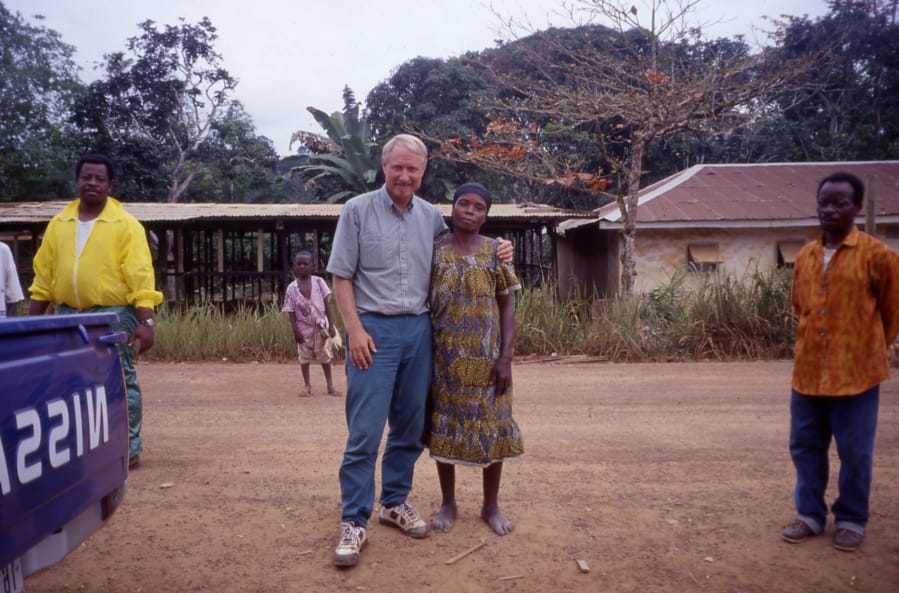The first social scientist to be invited by the World Health Organization to help Ebola control efforts works right here in Clark County.
Barry Hewlett, an anthropology professor at Washington State University Vancouver, visited Central Africa to help the WHO in 2000, and he has visited the continent about five times as part of response efforts.
Hewlett will share stories on his experience, and how he worked to develop trust between local communities and the international and national response teams, at 7 p.m. Wednesday for Science on Tap at Kiggins Theatre in Vancouver.
When Hewlett first arrived, there was some apprehension from locals when it came to dealing with those response teams.
If You Go
• What: Science on Tap.
• When: Doors open at 6 p.m. Wednesday; talk starts at 7 p.m.
• Where: Kiggins Theatre, 1011 Main St., Vancouver.
• Cost: Tickets are $9 advance; $10 suggested cover at the door.
• Info: 360-816-0352 or www.kigginstheatre.com
“The number of cases was going up, even though they were doing everything they thought they needed to do,” Hewlett said. “People were essentially running away from the World Health Organization treatment centers, isolation units and the rest. So the thought is, ‘What’s going on here?’ ”
‘Highly stigmatized’
Hewlett did his work by contacting as many people as possible who were involved in the effort. He spoke with response teams, survivors of Ebola, nurses, traditional healers and local folks.
One area where Hewlett was able to help was the transparency of the treatment process. When he arrived initially, there would be a tarp put up around treatment areas, which caused distrust, because locals couldn’t see or know what was being done to their loved ones. Hewlett recommended a fence that people could see and communicate through.
Hewlett also came to fully understand the scope and repercussions of the disease, not just in what it does to the body, but also in what it does to the economics of villages.
“People for good reason do not want to be associated with Ebola. It’s highly stigmatized,” Hewlett said. “We would come in the villages and people would yell and scream at us, ‘There’s no Ebola here.’ Basically, ‘The whites brought this in,’ for a variety of different reasons. That’s one, in terms of denying that it exists. The cost are so high for local people. If a village is associated with it, nobody will go to that village, and nobody will trade with that village, so there’s very huge costs for local people.”
Hewlett was inundated with surprises during his visits to Africa, such as how the local areas had already set up “their own indigenous control methods” for disease outbreaks. Those included checking people who entered and exited villages for Ebola and having survivors of Ebola take care of those with the disease.
“These people have been living with deadly diseases for thousands of years, so it makes sense that they would have some accumulated knowledge of how to deal with them,” Hewlett said.




